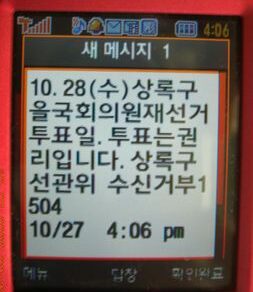I discussed and translated an article [EXPIRED LINK REMOVED: https://article.joins.com/article/article.asp?total_id=3895261] from the Jungang Daily newspaper last week in this post of Nojeok Hill: My View from the Top. Here is the (almost) full Korean source followed by the translation. It was nice to work on a translation project where I was the client since it gave me the freedom to translate a little less literally than usual.
Note that the following Korean text taken from the Jungang Daily website is not complete and I wasn’t able to find my printed copy again. So the English translation does contain a paragraph or so of content not in the Korean here.
“대한국민 만세”… 홍수환의 4전5기 챔피언 신화
1977년 11월 27일 파나마에서 홍수환 선수가 신설 체급인 주니어 페더급 챔피언에 올랐다. 74년 남아프리카공화국에서 첫 번째 챔피언에 올랐을 때 “엄마 나 챔피언 먹었어”, 그리고 “그래 내 아들아, 대한국민 만세다”라는 대화로 새로운 유행을 창조했던 홍수환이 파나마에서 또 드라마를 만들어냈던 것이다. 2회에 네 차례나 다운됐던 홍수환은 3회가 시작되자마자 역전 KO승을 이끌어냈다.
한국 근현대사에서 수많은 스포츠 사건이 있었음에도 77년 홍수환의 승리가 머릿속에 뚜렷하게 각인돼 있는 이유는 무엇일까? 무엇보다도 ‘역전’이라는 단어가 우리에게 주는 매력 때문일 것이다. 20세기에 들어서자마자 나라를 잃었고, 식민지에서 해방되자마자 분단과 전쟁을 겪었던 우리 민족에게 ‘역전’보다도 더 뚜렷한 목표는 없었다. 1936년 손기정, 76년 양정모의 올림픽 금메달이 있었지만, 70년대 레슬링의 김일, 권투의 홍수환, 그리고 야구의 군산상고에 환호했던 것은 바로 역전의 드라마 때문이었다. 이들은 우리 민족뿐만 아니라 우리 스스로를 대신해 역전 드라마를 써 주었던 것이다. 홍수환의 드라마는 77년 수출 100억 달러, 1인당 국민소득 1000달러, 그리고 쌀 자급을 통한 쌀 막걸리의 재등장과 점철되었다.
또 다른 이유는 암울한 시대 상황 속에서 피어난 환희의 순간이었다는 점이다. 77년은 유신의 어두움이 사회를 짓누르고 있었던 시기였다. 75년 베트남 패망뿐만 아니라 74년의 오일쇼크에 따른 경제적 어려움으로 짙은 그림자가 드리워져 있었다. 홍수환의 승리 한 달여 전부터 본격화된 학생시위로 인해 긴급조치 9호 이후 처음으로 20여 일간의 휴교가 있었지만, 언제쯤 봄이 올 것인지 누구도 예측할 수 없었던 시대였다. 여기에 더하여 동년 11월 11일에 있었던 이리역 다이너마이트 폭발 사건은 사회를 더 음울하게 했다. 이러한 어둠 속에서 터진 홍수환의 승리는 잠시나마 전 국민의 마음을 환하게 해 주었다.
스포츠는 이렇게 사회적으로 다양한 효과를 만들어 내며, 특히 국가대항전을 통해 국민을 통합하는 수단으로 작동했다. 대부분의 독재자가 스포츠 육성을 강조했던 것도 모두 이 때문이었다. 여기에 더하여 스포츠는 갈수록 순수성과 다양성을 잃고 상업화되고 있으며, 이제는 잔인함까지 더해가고 있다. 비록 그것이 ‘국가’를 위해 이용됐다고 하더라도 ‘그때 지금’의 아름다운 스포츠 정신이 그리워진다.
“Long Live Korea!” – The Legend of Hong Soo-hwan‘s Comeback Win
In Panama on November 27, 1977, Hong Soo-hwan was crowned champion in the newly established junior featherweight division. When he first won a championship in 1974 in South Africa, Hong had called his mother to tell her about it and is reported to have said, “Mom, I beat the champion”, to which his mother replied, “Yes, my son. Long live Korea!”. In fact, this short conversion even entered the Korean vernacular of the time. Hong’s fight in Panama also resulted in a well-known story. In the second round of that fight, he was knocked down four times but came out right at the beginning of the third round to win with a dramatic KO.
Even though many events have transpired throughout the modern history of Korean sports, Hong Soo-hwan’s win in 1977 stands out as one of the most memorable. What could be the reason for that? More than anything, the answer to this question is found in the fact that we Koreans are drawn to the idea of a come-from-behind win. Having lost our country’s independence to the Japanese at the very beginning of the 20th century, Korea then emerged from the Japanese colonial period only to be split in two and then suffer through the Korean War. During those long years, could we have wanted anything more ardently than a “come from behind win”?
Of course, athletes such as Sohn Gi-jeong and Yang Jeong-mo earned gold medals in the Olympics in 1936 and 1976, respectively. But it is the comeback wins in wrestling by Kim Il, in boxing by Hong Soo-hwan and in baseball by the Kunsan Commercial High School in the 1970s that Koreans remember with the most pride. These winners gave victories not just to the nation as a whole, but also to each of us individually. Hong Soo-hwan’s win took place alongside the national achievements in 1977 of reaching $100 million in exports and per capita income of $1,000, and coincided with the re-emergence of “makkoli” made with natively grown rice.
Another reason Hong Hwan-soo’s win stands out so clearly today is that it represented a happy moment in what was otherwise a very difficult time in the country. In 1977, the darkness of the Yushin Constitution was pressing down on society. Furthermore, not only had Korea been on the losing side in the Vietnam War but the oil shock of 1974 caused enduring economic shadows. As a result of the severe emergency measures taken by the government in response to the outbreak of student demonstrations about a month before, there was a 20-day suspension of university classes and no one at the time could predict when things would get better. In addition, the fresh memory of the Iri Station dynamite explosion incident that occurred on November 11 of the same year led to a generally gloomy feeling throughout Korean society. It was within this context that the victory of Hong Soo-hwan provided such an inspiration to the entire nation.
Sports generate various effects like this in society. In particular, they serve as a means of bringing a nation together through the shared experience of sporting events that take place at the national level. This is one reason most autocrats have pressed for the development of national sports programs. But in addition, the more sporting develops, the more the genuineness and variety are lost as commercialization creeps in. Here, we might even mention the cruelty that sports often involves. Thus, even if we say that such achievements are sought for the sake of the “country”, we still miss the naive beauty of the sports of that bygone era.



